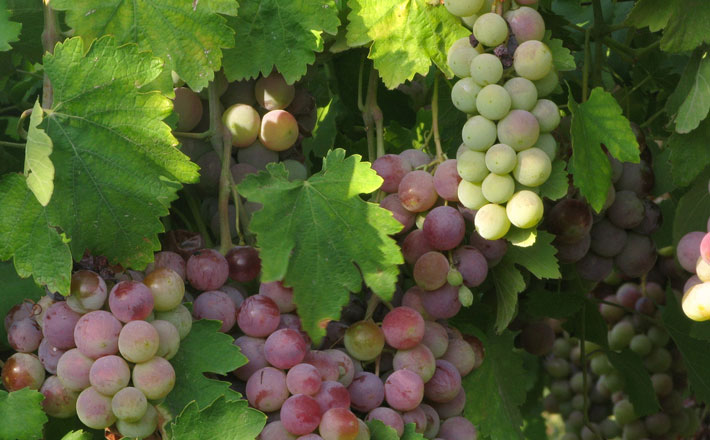Commentary on John 15:9-17
Now we have a shift from the vine of last week’s text to love. The two texts are actually of a piece.
The vine can only be understood in light of its definition as an abiding in love, and the fruitfulness of this love, as described in John 15:16 only makes sense in light of the vine.
As the last passage began with the true vine and the gardener-God and moved out from there to the branches, so here in John 15:9 the development of the theme of abiding presence begins again with the love between the Father and Son, as the call of v. 4 to abide in the vine — Jesus becomes explicitly a call to abide in Jesus’ love. In the Greek of v. 9, the Father and Son are nestled at the center, drawing Jesus’ friend-branches into that love and holding them there between the two verbs: Just as loves me the Father, so I you love. The imperative abide, which comes immediately after, has its basis in a love that is already present and in which the abiding one is already held.
The theme of commandment-keeping enters the spiraling fugue of abiding love in John 15:10, and, like the love of v. 9, the commandment-keeping of Jesus’ friends is analogous to Jesus’ own commandment-keeping relative to the Father. The commandment-keeping emerges from abiding love and is an expression of it (as in John 14:13), and in fact the only commandment given to Jesus’ own is the commandment to love; there are other imperatives (abide, ask, etc.) but only one command. We have already heard it at John 13:34-36, and it will be repeated here.
So they abide in his love by keeping the commandment to love, as the Son abides in the Father’s love by keeping his only commandment, which is that he should express the divine love for the world by coming into it and being present to it, which will inevitably lead to the hour that has been coming and is now here in the narrative (John 16:32). Jesus has restated this immediately before the start of the vine-love passage in John 14:30-31: The ruler of this world, who is coming, has no power over him. Rather he does as the Father has commanded him so that the world may know that he loves the Father. And we know from John 10:17-18 that the love and commandment-keeping between the Father and Son amount to the laying down and taking up of Jesus’ life.
A break occurs now in the development of commandment-keeping and abiding love with the introduction of a purpose statement in John 15:11. Jesus in these five chapters of farewell (John 13-17) is always simultaneously comforting his own and preparing them for the future. And he reminds them from time to time what he is about, why he is telling them all of this now: so that later they will remember it and it will help them, later in the near-term of brutality and death and then, later still, in their own future after they have seen him again and are sent into the world themselves with the abiding presence of the Father and Son and the testifying Spirit of truth. He is telling them all of this now so that they will remember (16:4), believe (13:19; 14:29), be kept from stumbling (16:1), have peace (16:33), and now have joy (15:11). He will say the same thing again in John 17:13, next week’s text, that he is allowing them to overhear his prayer about their future so that their joy may be complete.
We are given an image of joy before then in John 16:20-24, in the metaphor of the woman who forgets the pain of labor in light of the overwhelming joy of having brought a human being into the world. The word translated anguish in John 16:21 is the one used in John 16:33 for the persecution that Jesus’ own will face and which Jesus has already overcome. So the joy offered in John 15:11 and John 17:13 is a deep and enduring creative gladness that, even when it seems most unlikely, will inevitably come to Jesus’ own. And they are perhaps also joy-bearers and midwives of joy for the world into which they, like Jesus, have been born of God (John 1:1-18) and will be sent.
The passage finally reaches the restatement of the love commandment in John 15:12. It corresponds to the second of the three iterations in John 13:34-35, the command that Jesus’ own should love as Jesus has loved them. Then in John 15:13 we are reminded what that looks like for Jesus. Drawing on the language of the shepherd discourse, Jesus now identifies the laying down (and taking up in John 10:17-18) as not only an act of commandment-keeping on his part but also an act of love for his friends.
Jesus’ own are no longer slaves but friends, not on the basis of anything that they have done for him but on the basis of what he has done for them. He has made known to them everything that he has heard from the Father. In John, love (the belovedness of friendship) and mutual knowledge, like love and commandment-keeping, go hand in hand.
Jesus’ initiative is underscored in John 15:16. He does the choosing and appointing. And for those of us who wish to abide in his love, this is surely good news, that we do not carve out a position as Jesus’ branch-friend and that our abundance does not depend on us; we might not even be able to imagine precisely what it will look like since we aren’t the ones doing the pruning and can only see our part of the vine. We merely choose to abide in the love that has drawn us in, and then we blossom.
Finally there is the commandment yet again so that the gospel garland of love and joy and fruitfulness comes to a close at the heart of the matter.
The lectionary never gives us the resistance and hate of John 15:18-16:4a. It takes the testimony of John 15:26-27 and moves down to the more palatable John 16:4b-15 for Pentecost. But the missing verses matter for us because it is only against the backdrop of the world’s hate that the radical nature of God’s love is revealed in its fullest glory. And it is into such a world that Jesus’ own are sent to testify and bear fruit, to love as Jesus loves.


May 10, 2015